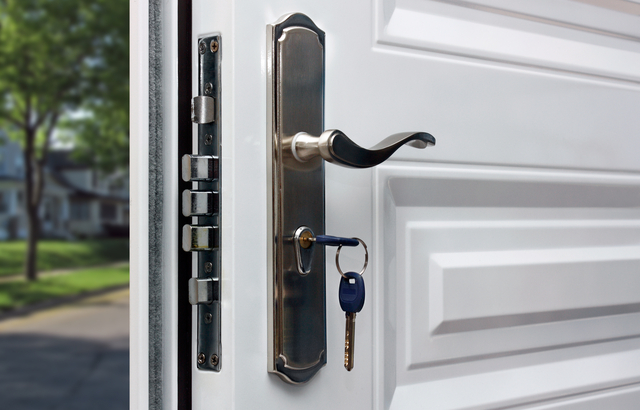Imagine the panic if Google, the most powerful search engine in the world, allowed its users' data to be compromised. Well, it almost happened.
Back in 2015, the chief jokers at Google decided to mess with people a little bit. On April 1st, it switched its famous domain to com.google – and as a result, all content was displayed backwards.
There was one issue though. The switch “undermined an important security feature on Google's real homepage”, opening the door for cybercriminals to take advantage of Google’s 3.5 billion users.
April Fools!
Luckily, the breach was spotted before any damage was done, but there’s a lesson in there somewhere: if it can almost happen to the overlords of the Internet, surely it can happen to anyone.
So, backing up your data is important then. That’s the thinking behind World Backup Day, which, with the slightest hint of irony, falls on April Fool’s Day. And in a world where over 1.8 zettabytes of data are being created every year, it’s hard to argue against that logic.
But is it enough to just back your data up once? Not really. If you consider that the average person generates 10GB a month, as Cisco figures, all that info starts to pile up. For the young families whose first family snaps are all digital, the start-ups who keep their receipts and records online, every day should be Backup Day.
Data - be it pictures, videos, sound files or text files - is now a part of everyday life for millions of people. Of course, it’s not just a case of protecting your precious data from something innocuous like a machine malfunction; the heightened threat of being hacked is also a big problem in the digital age.
Digital life on the line

Mat Honan is a case in point to the peril of failing to protect oneself online.
Back in 2012, cybercriminals gained access to all Mat’s sensitive data after a perfect storm of flaws from Apple and Amazon allowed them to waltz straight into his digital life. It happened quickly and without warning. In the space of a few hours, Mat was locked out of all of his digital accounts – Google, Apple and Amazon.
Once in, the cybercriminals wrecked the place, deleting everything he had: pictures of his daughter, important work files on his Mac, everything on his phone. None of it was backed up and he lost it all forever.
Ultimately, he was lucky. The cybercriminals were not after his money – although they could have easily accessed his online banking through his email accounts – they just wanted to mess with his social media. A bit of light trolling from petty vandals.
Still, even though he wasn’t out of pocket, Honan lost things – like the images of his daughter’s first year of life – that it’s hard to put a price on.
Big data, big money
It’s estimated that cybercrime costs the global economy well over £200 billion a year. In fact, according to Techcrunch, there’s a massive online business dedicated to the transfer of hacked details: platforms with rating systems based on security (oh, the irony!); speed and reliability.

From credit card details to medical history, one person’s data in the wrong hands can be a lucrative way to make money. And the more skilled the cybercriminals are, the more damage they can do with your details.
Extortion in the form of ransomware is also common, whereby people are locked out of their devices by malicious code, leaving them unable to access their data. A price tag is subsequently attached to the retrieval of their data. Depending on how sensitive the data is, this can be extremely costly - especially for an organisation with confidential information, like the US hospital which had its data stolen. The price tag the criminals put on the information? A cool $3.7 million.
Aside from the cost of fraud, which can usually be recouped through insurance, there’s also the personal cost of data recovery – if indeed any of the data lost can be recovered – a service that doesn’t come cheap.
Everybody needs backup

Of course the best way to avoid becoming a victim is a proactive defence. Think about data like you would your own home: you wouldn’t leave the door open while you went to the shops.
This guide lays out a solid foundation for a good backup system. Essentially, it’s a two-pronged strategy: hardware and software. Being proactive is key. Keep your data safe and secure with remote devices, like external hard drives, in case laptops or smartphones become irreparably damaged or compromised. Meanwhile, update your passwords frequently and ensure you have a decent spyware product in place can help protect the software from cybercriminals.




